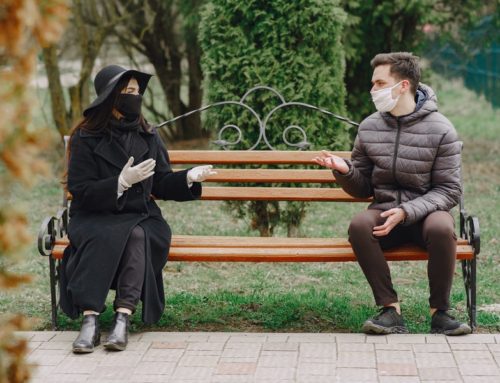Perhaps the most powerful source of fear in these days of the coronavirus pandemic is uncertainty. We don’t know how much worse the health situation, or the economy may get and there’s no clear path forward. The entire nation is grappling with an unsettling level of ambiguity, and it’s hard for everyone. For those of us with anxiety disorders or depression, uncertainty is more than a problem in itself. It works as a giant trigger for an escalation in our symptoms.
All is not lost. There are concrete ways to get grounded and prevent anxiety from taking charge. Let’s explore some ways to get grounded in this time of upheaval.
Control what we can
It’s natural to try to exert control over as much of our lives as we can, but in this unique and transitory time, we have to identify what we have power over, as well as what’s out of our grasp. We don’t have a lot of control over when or how the coronavirus epidemic ends. However, we can take steps to keep ourselves healthy by observing social distancing and handwashing. We can also reduce our anxiety levels by paying attention to those aspects of our lives we do have control of. By setting up some reliable touchpoints, or anchors in our routines, we can help establish a little predictability to our daily lives.
• get up and go to bed at the same time daily
• eat meals regularly and schedule your snacks
• speak with a friend or family member daily, by phone or the net
• set aside time in the day for hobbies
Work with your emotions, not against them
Uncertainty triggers worry, anxiety and fear. That said, it’s ok to experience these emotions as long as we don’t let them control our behaviors. We can feel our feelings without allowing them to be our boss. “Staying with the feeling” is a useful exercise for becoming acclimatized to difficult emotions. When you feel uncertainty starting to creep up, stop and pay attention first to your surroundings. What are you doing? Are you checking social media? Talking to a friend who’s always a pessimist? Going through overdue bills and worrying about how to pay them? Notice what you’re doing when negative emotions threaten to overtake you.
Next, notice how your body is responding. Have you got a lead ball in your stomach? Are you tightening up your muscles? Is your heart racing? Everyone has a unique mental and physical pattern that accompanies getting stressed out. Learning how we respond to the stress coming from uncertainty allows us to short-circuit it before we lose a night’s worth of sleep or have a panic attack.
Let go. Feel the stress in your body and release it. Unclench your muscles; take slow, deep breathes and notice how your body reacts. Underlying a lot of our anxiety is the sound of “what if?” clanging away, stuck on repeat. It can help to have a mantra or a worry-fighting phrase of your own. It should be simple, like “I’m ok, I’m going to stay ok.” What you use is up to you.
Shift your attention. Focus on solvable worries, taking action on those aspects of a problem that you can control, or simply go back to what you were doing. When your mind wanders back to worrying or the feelings of uncertainty return, refocus your mind on the present moment and your own breathing.
If your anxieties have been getting the best of you, Damaris Aragon, ARNP, BC provides a full spectrum of mental health care to people in Spokane, Washington, and surrounding areas. She focuses on providing personalized, compassionate care that adheres to current evidence-based standards. Reach out to Damaris through her contact page or calling 509-342-6592.






